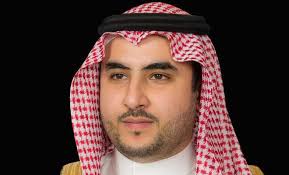On 22 April 2017, Saudi Arabia’s King Salman bin Abdulaziz issued a series of royal decrees, the effects of which include changes to domestic policy and a reshuffling of government cabinet positions. As part of this flurry of activity, King Salman appointed one of his sons, Prince Khalid bin Salman, to be Saudi Arabia’s Ambassador to the United States. The decision to replace the current ambassador, Prince Abdullah Bin Faisal Al Saud, with Prince Khalid reflects Saudi Arabia’s interest in pursuing closer ties with the US under President Trump. During Prince Khalid’s tenure, the US government must ensure that it utilizes this influential conduit to King Salman in order to promote domestic human rights reform in Saudi Arabia and an end to the Saudi-led conflict in Yemen.
Prince Khalid is the younger brother of Saudi Arabia’s powerful Deputy Crown Prince Mohammed bin Salman, and he received military training and education in the United States. A pilot in the Saudi Royal Air Force, Prince Khalid graduated from Columbus Air Force Base in Mississippi and went on to train at the Nellis Air Force Base in Nevada. He subsequently studied at Harvard University and Georgetown University. During his military career, Prince Khalid took part in combat operations in Yemen as part of the Saudi-led coalition, as well as in combat operations as part of the international coalition fighting the Islamic State.
As the newly-minted ambassador to the United States, Prince Khalid is replacing Prince Abdullah Bin Faisal Al Saud, who has held the position for less than two years. The significance of this swap is largely due to the place each prince occupies in the hierarchy of the Saudi ruling family. On the one hand is Prince Abdullah, who is not a direct grandson of Saudi Arabia’s founder Ibn Saud and is not regarded as a member of the Al Saud family’s inner circle. On the other hand is Prince Khalid, the son of the current king and the brother of the deputy crown prince, thus granting him an uninterrupted link to the Saudi monarch. By making this change, King Salman has ensured that there is a direct line of communication open between himself and the Trump administration.
The increased level of influence carried by the newly-appointed Saudi ambassador comes in the context of already-warming relations between Washington and Riyadh. Within the past week, Secretary of State James Mattis visited Saudi Arabia in an effort to “reinvigorate” US-Saudi ties, and Secretary of State Rex Tillerson spoke of taking the relationship “to new heights” during a speech at the US Chamber of Commerce to a number of Saudi business leaders.
The Trump administration has also recently signaled its intention to go ahead with a $300 million sale of precision-guided missile technology to Saudi Arabia that was halted in December 2016 by the Obama administration amid concerns over the Saudi-led coalition’s alleged war crimes in Yemen. Meanwhile, the US has continued to provide the Saudi military with intelligence and aerial refueling for their combat aircraft. The Trump administration is now reportedly considering providing even more support for the Saudi-led coalition’s efforts in Yemen in order to “help the Saudis advance their campaign.” The war has already cost more than 10,000 lives and left nearly 20 million more in urgent need of humanitarian aid.
Rather than responding to the ambassadorial appointment of Prince Khalid by making the irresponsible decision to provide more material or logistical support to the Saudi military or its coalition partners in Yemen, the United States should instead view this as an opportunity to push for an immediate end to the conflict. Indeed, Secretary Mattis stated while he was in Saudi Arabia that his goal was to end the war in Yemen “as soon as possible” by initiating UN-brokered negotiations. Prince Khalid’s connection to King Salman should be used to call for these outcomes. Similarly, the US should seek to open the door to independent investigations into the numerous allegations of coalition war crimes in Yemen, some of which have been carried out using US-made weapons.
In addition to addressing the Yemeni conflict, the Trump administration must also call for meaningful domestic reforms in Saudi Arabia. If the US under President Trump is going to continue strengthening its ties with Saudi Arabia, these areas of concern must be situated at the core of increased cooperation. A more direct line of communication to the King of Saudi Arabia can be an asset, but only if the Trump administration will use it to call for peace and human rights.
Phil Bracey is an Advocacy Intern at ADHRB.





